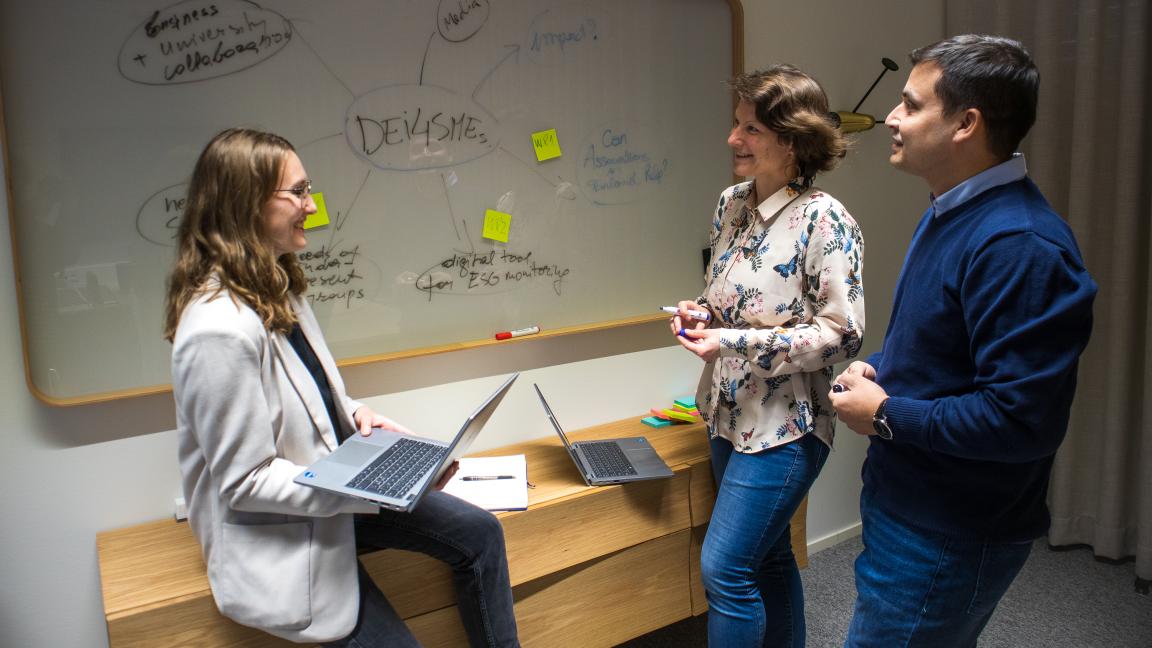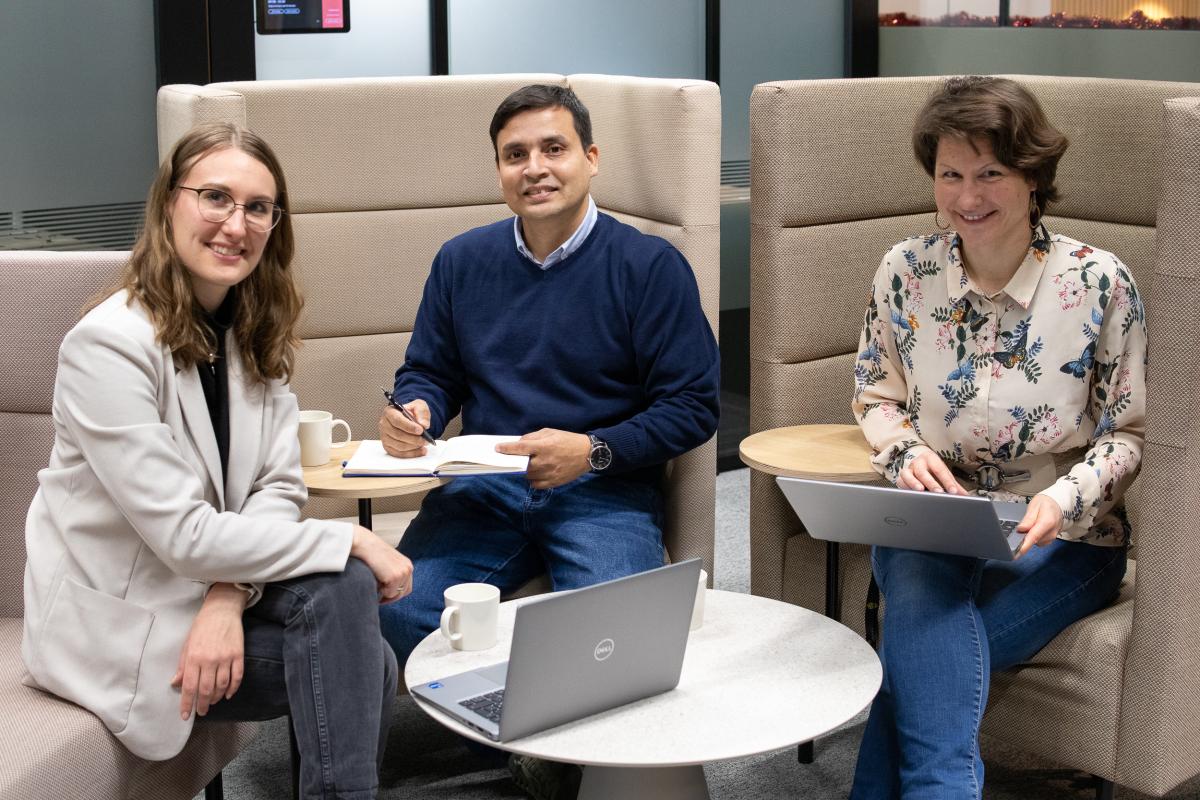New project empowers smaller businesses and higher education for diversity, equity, and inclusion
University-industry collaboration to make diversity work for businesses
– We are very pleased to launch the DEI4SME project together with a number of great local and international partners. This collaboration seeks to bridge the gap between education and industry by creating a cutting-edge digital tool for planning, implementing, and monitoring DEI activities to support value creation within SMEs, says Minna Martikainen, the Rector of the University of Vaasa. – This is an immediate benefit for SMEs, who will be able to use the tool to enhance their business, but also a long-term benefit for higher education institutions, which will receive an ecosystem needed to prepare business graduates to be inclusive business professionals.
The DEI4SME project was designed to address two major contemporary challenges: the legal requirements for businesses to report their environmental, social, and governance (ESG) responsibility, which can become an overwhelming burden without the provision of practical and efficient tools. Additionally, there is a scarcity of materials and best practices for developing business professionals’ competencies in social sustainability, including DEI.
The project engages various stakeholder groups to co-create efficient DEI-management solution
– Issues related to diversity, equity, and inclusion are among the trickiest within the entire ESG reporting framework. Businesses today are confused about what to do with it. That is why, only through co-creation with various stakeholders – businesses, associations representing various diversity groups, and higher and vocational education institutions – can we create something that works and recognises the challenges of various stakeholder groups, says Aušrinė Šilenskytė, DEI4SME project leader at the University of Vaasa.
DEI4SME, co-funded by Erasmus+, aims to achieve its goals by involving different stakeholder groups in various activities: interviews, surveys, hackathons, focus group discussions, webinars, and similar. The planned three-year project outcomes – the open-access digital tool, learning materials, and others – will be made available to higher education and vocational training institutions, as well as SMEs. Insights and tips on DEI management gathered during the implementation will be shared on the project’s social media pages.
Diversity that generates appreciation for diversity
The DEI4SME’s project partners are diverse organisations, including universities, vocational education providers, chambers of commerce, and networking organisations, that have successfully engaged in various diversity and people management-related projects. In the DEI4SME project consortium, there are the University of Vaasa and Merinova from Finland, Kaunas University of Technology from Lithuania, IHK-Projektgesellschaft MbH from Germany, and Wirtschaftskammer Steiermark and E.N.T.E.R. from Austria.
Each partner organisation thrives and benefits from diversity every day. For example, the DEI4SME team at the University of Vaasa comprises members of diverse ages, five different nationalities (Finnish, Lithuanian, French, Belarusian, Bangladeshi), diverse races, different educational and religious backgrounds, and different family statuses, to mention a few. However, to establish a standardised EU framework for monitoring social sustainability, especially DEI, that creates value for all stakeholder groups, this diversity is not enough.
– Whether you represent an SME eager to enhance social responsibility implementation and reporting practices, or you are an educator aspiring to engage students with social sustainability, or a passionate advocate for DEI, your involvement is crucial, say project co-managers Sniazhana Diduc and Leena Kunttu.
DEI4SME
- Stakeholders can express their interest and receive further information on this project or express their interest in becoming a part of the project’s activities: https://link.webropolsurveys.com/S/28A7ABA7831D9F7F
- Read more about this project: https://www.uwasa.fi/en/research/projects/DEI4SME
*
This project is funded by Erasmus+, the European Union’s program for education, training, youth, and sport.
Further information
Project leader Aušrine Šilenskyte


